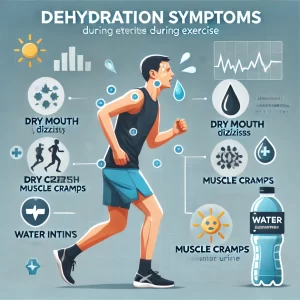Introduction
With so much information about weight loss available online, it can be difficult to separate fact from fiction. Many people fall for popular myths that may actually hinder their progress rather than help them. In this guide, we’ll debunk common weight loss myths and highlight the science-backed strategies that actually work.

Myth #1: Carbs Are the Enemy
Truth: Carbohydrates are essential for energy and overall health.
Many believe that cutting carbs entirely is the key to weight loss, but the truth is that not all carbs are bad. Whole carbs like fruits, vegetables, whole grains, and legumes provide essential nutrients and fiber that help regulate metabolism and digestion. The real culprits are refined carbs like white bread, pastries, and sugary snacks.
What Works:
- Choose whole grains over refined carbs.
- Focus on fiber-rich carbs to maintain fullness.
- Balance carbs with protein and healthy fats for a sustainable diet.
Myth #2: Eating Late at Night Causes Weight Gain
Truth: It’s about total calorie intake, not timing.
Many people believe that eating after a certain hour leads to weight gain. However, studies show that weight gain occurs when you consume more calories than you burn, regardless of when you eat.
What Works:
- Avoid mindless late-night snacking by staying full throughout the day.
- Choose light and protein-rich snacks at night if you’re hungry.
- Focus on portion control rather than meal timing.
Myth #3: Cardio is the Best Way to Lose Weight
Truth: Strength training and a balanced approach yield better results.
While cardio burns calories, relying solely on it may lead to muscle loss. Strength training builds muscle, increases metabolism, and helps you burn more calories even at rest.
What Works:
- Combine cardio and strength training for optimal fat loss.
- Include HIIT (High-Intensity Interval Training) workouts for efficiency.
- Aim for at least 2-3 days of strength training per week.
Myth #4: Fat Makes You Fat
Truth: Healthy fats are essential for weight loss and overall health.
Fat has long been demonized, but not all fats are bad. Healthy fats help keep you full, support brain function, and regulate hormones.
What Works:
- Include healthy fats like avocados, nuts, seeds, and olive oil.
- Avoid trans fats and processed foods that contribute to weight gain.
- Balance your meals with protein, carbs, and fats for sustained energy.
Myth #5: Skipping Meals Helps You Lose Weight
Truth: Skipping meals can slow metabolism and lead to overeating.
Many believe that eating less frequently speeds up weight loss, but skipping meals can lead to extreme hunger, cravings, and binge eating later in the day.
What Works:
- Eat small, balanced meals throughout the day.
- Focus on protein and fiber-rich foods to stay full longer.
- Listen to your body’s hunger and fullness cues.
Myth #6: Detox Teas and Supplements Help Burn Fat
Truth: There are no magic weight loss solutions.
Detox teas, fat-burning pills, and other supplements often promise quick results but lack scientific backing. These products may lead to temporary water weight loss but don’t promote long-term fat loss.
What Works:
- Focus on whole, unprocessed foods for natural detoxing.
- Drink plenty of water and include fiber-rich foods for digestion.
- Avoid spending money on unproven weight loss supplements.
Myth #7: You Have to Cut Out Your Favorite Foods to Lose Weight
Truth: Moderation is key.
Eliminating your favorite foods can make dieting feel restrictive and lead to binge eating later. A sustainable diet includes all foods in moderation.
What Works:
- Follow the 80/20 rule (80% nutritious foods, 20% treats).
- Enjoy your favorite foods in smaller portions.
- Make healthier swaps where possible (e.g., dark chocolate instead of milk chocolate).
Myth #8: Drinking More Water Directly Burns Fat
Truth: Water supports weight loss but doesn’t burn fat on its own.
While drinking water helps with hydration and digestion, it doesn’t directly lead to fat loss. However, staying hydrated can reduce cravings and help control appetite.
What Works:
- Drink at least 8-10 glasses of water per day.
- Replace sugary drinks with water, herbal tea, or infused water.
- Drink water before meals to help with portion control.

Conclusion
Weight loss myths can be misleading and may prevent people from achieving their goals effectively. The truth is that a balanced diet, regular exercise, proper hydration, and a sustainable approach are key to successful weight loss. Instead of following diet fads, focus on what actually works: nutrient-rich foods, strength training, portion control, and consistency.
At GoodForGirlz, we believe in empowering women with science-backed nutrition and fitness advice to help them achieve lasting results in a healthy and enjoyable way.





